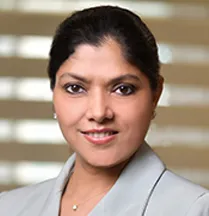-
CENTRES
Progammes & Centres
Location
 PDF Download
PDF Download 
It has been over a decade since the first G20 Summit was held in Washington DC. While much progress has been made on key global issues, gender inequality remains a significant concern in many countries. Women face unequal access to education, employment opportunities, healthcare services, and legal rights. Additionally, in many countries, women are often denied basic human rights such as the right to vote or participate in public life. As a result, there is an ever-widening gender gap between men and women across all areas of life. Recent initiatives in the G20 countries have shown that governments are willing to act against this injustice and make strides towards addressing gender inequality. At the same time, there are still areas where more needs to be done to ensure gender equality is achieved across all sectors of society. Programmes that focus on the economic empowerment of women need to be expanded and better funded so that more women can gain access to the financial resources necessary for business ownership and other entrepreneurial endeavours. Furthermore, greater efforts should be made to change social attitudes about women’s roles in society so that they are seen as equal partners rather than subordinates or second-class citizens. Pathways to Equality: Advancing Gender Goals in the G20 assesses a selection of critical issues faced by women in the G20 nations. It is a critical ‘thinking and doing’ volume for readers seeking to understand how we can transform society by moving the needle on gender equality. The curated essays discuss gender inequality in the G20 countries and explore current initiatives that are being taken to address this pressing issue. It features an all-star set of contributors from various fields, including eminent leaders from politics and society, philanthropists, policymakers, and thought leaders. The featured essays highlight the struggles but also offer up ideas and positive examples of how gender bias can be remedied in creative and practical ways.
The compendium is organised by three broad themes—social and environmental (including progress on SDG-5, impacts of COVID-19, green energy transition, and climate change), political (such as the role of women in multilateral systems, peace, and security processes), and economic (which focuses on women’s financial inclusion and the role of women in technology and entrepreneurship). This volume includes 13 chapters covering various overlapping themes, depicting the expertise and ideas of our well-known contributors. We are incredibly grateful to all our contributors: Klaus Schwab, Ambassador Ruchira Kamboj, Cherie Blair, Maria Fernanda Espinosa Garces, Baroness Mary Goudie, Ambassador Melanne Verveer, Estelle Clayton, Justin Worland, Kiran Shaw, Princess Reema bint Bandar Al Saud, Shelley Zalis, Rohini Nilekani, and Damilola Ogunbiyi. We are also immensely thankful to Smriti Zubin Irani and Amitabh Kant for their invaluable insights on the crucial subject of gender equality and women’s empowerment. Additionally, we have had the opportunity to compile a volume drawn from various fields of politics, business, and society. We have also had the opportunity to contribute to chapters highlighting the importance of participating as equals with equal values, the movement towards a gender-equal future, and the focus on pandemic-amplified gender vulnerabilities. As we understand the different themes and perspectives through the lens of our contributors, we must realise that one of the crucial steps towards reducing gender inequality is to enhance economic opportunities for women. Numerous studies have shown that when women are economically empowered, societies prosper as a whole. By providing women with equal access to education and employment opportunities, the G20 countries can tap into the vast potential of their female workforce, contributing to economic growth and stability. However, to achieve this, programmes that promote financial literacy, vocational training, and business development among women need to be expanded and adequately supported. Providing women with the necessary skills and resources will enable them to overcome barriers and become active contributors to their economies. Beyond economic empowerment, changing attitudes about women's roles in society is paramount. Discriminatory norms and stereotypes continue to hinder progress towards gender equality. Societies must recognise and reject harmful gender biases that limit women's potential. Education plays a crucial role in this transformation, as it helps challenge deeply ingrained gender norms and promotes gender equality. Implementing comprehensive gender education programmes in schools, which focus on breaking down stereotypes and promoting equal opportunities, can help reshape societal perceptions and promote more inclusive attitudes towards women. In addition to education, legislative reforms are essential to dismantle the systemic barriers that impede gender equality. Governments must take measures to ensure women have equal access to healthcare, legal rights, and political representation. This includes addressing gender-based violence and discrimination, ensuring reproductive rights, promoting equal pay for equal work, and creating legislation that safeguards women's rights in all areas of life. Laws and policies that protect women from discrimination and violence must be enacted, enforced, and regularly evaluated to ensure their effectiveness. Although progress has been made in addressing gender inequality, there is still much work to be done. The G20 countries have shown a willingness to combat this injustice, but it is essential to expand and fund programmes that economically empower women, challenge social attitudes, and strengthen legal frameworks. By taking concrete actions to close the gender gap, the G20 countries can create societies where women have equal access to opportunities, decision-making power, and the ability to contribute fully to social, economic, and political development. Achieving gender equality is not only a matter of human rights but also a catalyst for sustainable development and prosperity for all.
In conclusion, the issue of gender inequality persists in many countries, despite significant advancements in other global areas. Recent initiatives within the G20 countries demonstrate a willingness to address this injustice and make progress towards gender equality. By prioritising gender equality, the G20 nations can serve as beacons of progress, inspiring other countries to join the journey towards a more equitable and inclusive world for all. While progress has been made in some G20 countries, it is essential to recognise that achieving gender equality requires a sustained commitment and collaboration among nations. Cooperation and sharing of best practices between countries can accelerate progress towards gender equality. The G20 nations have a unique opportunity to lead by example and establish frameworks that prioritise gender equality both domestically and internationally. It is essential to recognise that achieving gender equality requires sustained commitment and collaboration across society. In this context, a narrative documenting the various struggles and opportunities women face—social, cultural, economic, political, and legal—is timely. This volume hopes to inform the G20 debates by traversing a broad array of subjects and stakeholders. By doing so, it hopes to make an important contribution towards understanding the contours of conversations on gender equality in the 21st century.
Read it here.
The views expressed above belong to the author(s). ORF research and analyses now available on Telegram! Click here to access our curated content — blogs, longforms and interviews.

Vaishali Nigam Sinha is Co-Founder and Chairperson of Sustainability at ReNew a Nasdaq-listed leading global renewable energy company. She is also the Founding Chair of ...
Read More +
Dr Nitya Mohan Khemka is Director at PATH- a global Health think-tank focussing on health equity. She is also Trustee of the Khemka Foundation, an ...
Read More +